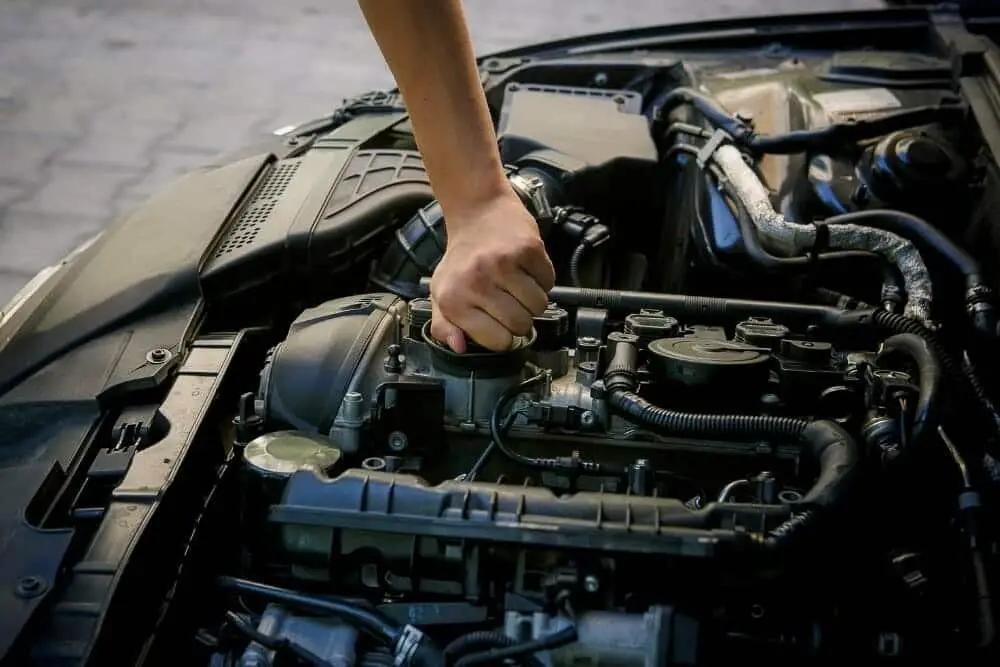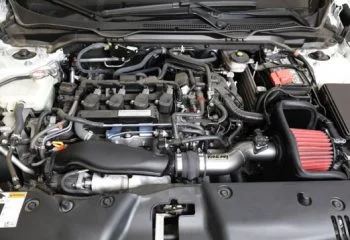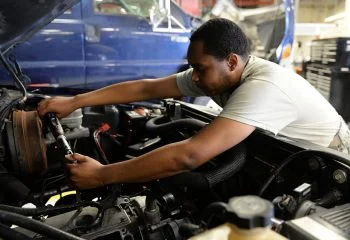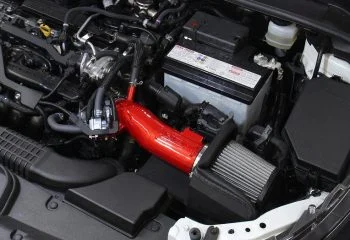The answer is yes, your car will technically still run without an oil pressure sensor, but it is not advisable to operate a vehicle without one. The oil pressure sensor is vital for preventing engine damage, as low oil pressure can cause the engine to overheat or seize up.
The oil pressure sensor is a vital engine component that helps to monitor and regulate the oil pressure in the engine. The sensor works by measuring the pressure of the oil in the engine and sending a signal to the engine control unit (ECU).
The ECU then uses this information to adjust the oil flow rate and pressure to ensure optimal engine operation. But what happens if it fails? Will my car run without oil pressure sensor?
The engine control unit relies on the oil pressure sensor to provide information about the oil pressure in the engine. If the sensor is not working, the ECU will not be able to adjust the fuel mixture or ignition timing. This can lead to engine damage, as well as decreased fuel economy and performance.
In addition, without an oil pressure sensor, you will not receive any warning if the oil pressure in your engine drops too low. This can cause the engine to overheat or seize up, leading to expensive repairs. This can lead to a number of problems and expensive repairs, such as:
- Reduced fuel efficiency
- Engine knock
- Increased wear and tear on engine components
For these reasons, it is best to replace a damaged or malfunctioning oil pressure sensor as soon as possible.
What's in this post?
How does oil pressure sensor work?
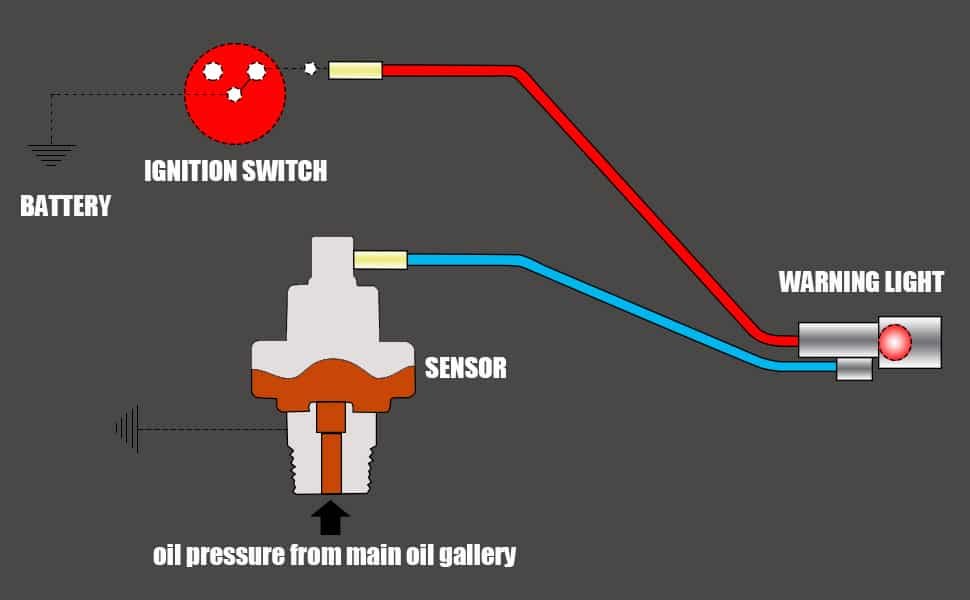
The oil pressure sensor is a small device that monitors the oil pressure in an engine. It is usually located on the side of the engine, near the oil filter.
The sensor consists of a metal coil that is surrounded by a magnet. As the engine oil pressure increases, the coil expands and the magnet moves closer to the coil.
This change in magnetic field strength is detected by the sensor and translated into an electrical signal that is sent to the engine control unit. The ECU then uses this information to adjust the engine’s fuel mixture and ignition timing.
By monitoring and regulating the oil pressure, the oil pressure sensor helps to ensure that the engine is operating at peak efficiency.
What happens if you drive without an oil pressure sensor?
Without an oil pressure sensor, your engine will not have proper lubrication and will eventually seize up. The oil pressure sensor is responsible for monitoring the oil pressure in the engine and sending a signal to the engine control unit.
If the oil pressure gets too low, the sensor will send a signal to the engine control unit to turn on the oil pump. Without this sensor, your engine will not receive the proper lubrication it needs and will eventually seize up.
It is important to replace your oil pressure sensor if it fails so that your engine can continue to run smoothly.
Can you drive with a broken oil pressure sensor?
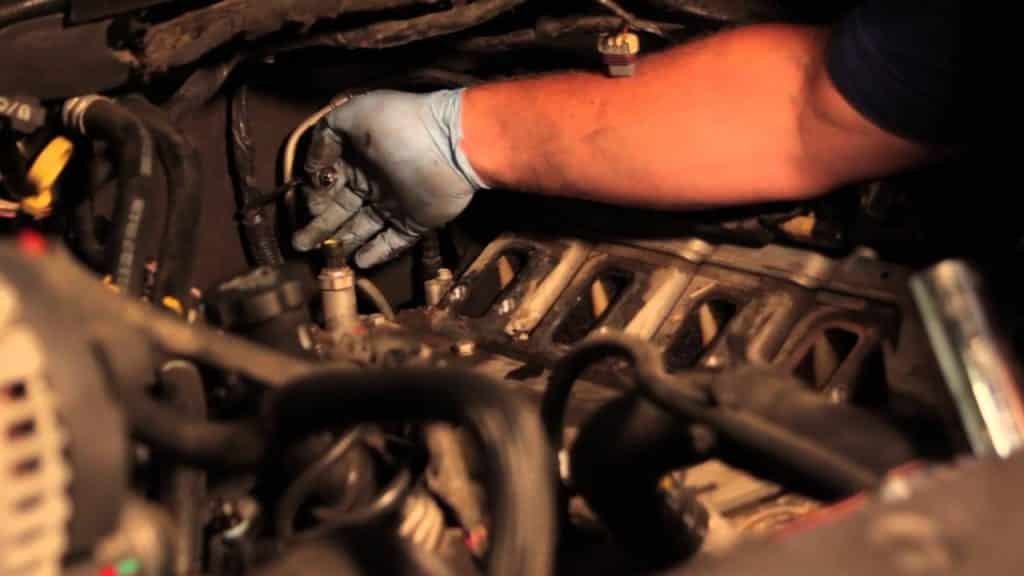
A broken oil pressure sensor is not an immediately hazardous issue, but it is one that should be addressed as soon as possible. While it is technically possible to drive with a broken oil pressure sensor, it is not advisable.
The oil pressure sensor is responsible for sending information about the amount of oil pressure in the engine to the vehicle’s computer system. If the sensor is not working properly, the computer will not have an accurate reading of the oil pressure. This can lead to the engine running without enough oil, which can cause serious damage.
In addition, a broken oil pressure sensor can also trigger a warning light on the dashboard, making it difficult to ignore. For these reasons, it is best to have a broken oil pressure sensor repaired before driving the vehicle.
Signs of a bad oil pressure sensor
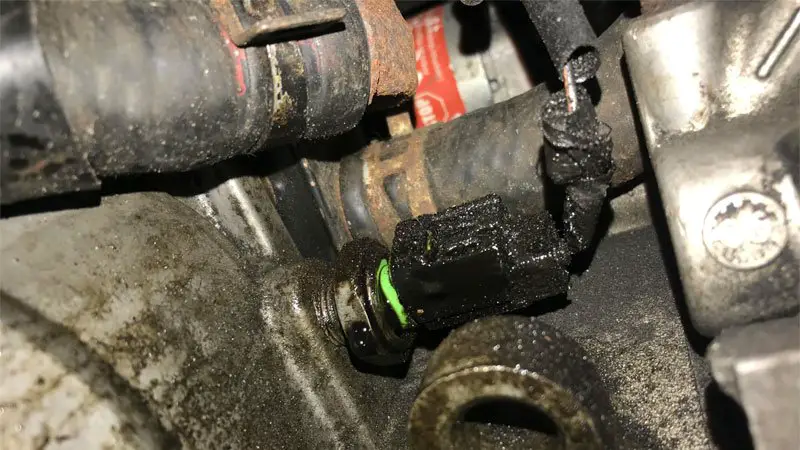
One of the most important sensor types in any vehicle is the oil pressure sensor. It’s responsible for monitoring the amount of oil pressure in the engine, and if it detects an abnormally low reading, it will trigger a warning light on the dash.
A bad oil pressure sensor can have several different symptoms, including a sudden drop in oil pressure, a check engine light, and poor fuel economy. In some cases, it can even cause the engine to stall.
Oil pressure drop
A car’s oil pressure sensor is designed to monitor the oil pressure in the engine and send a signal to the engine control unit (ECU) when it drops below a certain level. If the sensor is faulty, it can cause the oil pressure to drop, which can lead to engine damage.
In most cases, a bad oil pressure sensor will trigger a warning light on the dash, but it can also cause the engine to run poorly or stall. If you suspect that your oil pressure sensor is faulty, it’s important to have it checked by a mechanic as soon as possible.
Check engine light
The oil pressure sensor is located in the oil pan and is responsible for sending a signal to the engine control module telling it the oil pressure.
If the oil pressure sensor is not working properly, it will not be able to send an accurate signal to the engine control module and the check engine light will come on.
Poor fuel economy
There are a few reasons why a bad oil pressure sensor can lead to poor fuel economy. First, if the sensor is not working properly, it may not be able to accurately gauge the amount of oil pressure in the engine. As a result, the engine may run with too little or too much oil pressure, which can lead to inefficient operation and increased fuel consumption.
Additionally, a faulty oil pressure sensor can also cause the engine to run hotter than normal, which can also lead to higher fuel consumption.
Finally, if the oil pressure sensor is sending inaccurate information to the engine control unit, it can cause the vehicle’s fuel injectors to deliver too much or too little fuel, which will also reduce fuel economy.
In short, there are a number of ways in which a bad oil pressure sensor can negatively impact fuel economy.
If you’re experiencing any of these problems, it’s important to have your vehicle checked by a qualified technician as soon as possible. Left unchecked, a bad oil pressure sensor can lead to serious engine damage.
Useful read: Do Teslas Need Oil Changes
How do you check an oil pressure sensor?
The oil pressure sensor is a vital piece of equipment in any car. It helps to regulate the pressure of the oil, and it also sends a signal to the engine control unit when the oil level is low. Checking the oil pressure sensor is a relatively simple task.
- First, make sure that the engine is off and that the car is in the park. Then, locate the sensor on the engine block. It will usually be located near the oil filter.
- Once you have found the sensor, use a wrench to loosen the nut that holds it in place.
- Next, remove the sensor and use a clean rag to wipe away any dirt or debris.
- Finally, reinstall the sensor and tighten the nut.
- Once you have checked the oil pressure sensor, you can be confident that your car is running smoothly.
When to reset your oil change light?
Most oil change lights are designed to come on at around 5,000 miles. However, this is just a general guideline, and your specific car may need an oil change sooner or later than that. If you’re unsure when to reset your oil change light, it’s best to consult your car’s owner’s manual. In general, it’s a good idea to get an oil change every 3,000 miles or so.
However, if you’re driving in stop-and-go traffic or in other conditions that put a lot of stress on your engine, you may need to change your oil more frequently. When in doubt, it’s always best to err on the side of caution and get your oil changed sooner rather than later.
Are the oil pressure switch and sensor the same thing?
The oil pressure switch and sensor are two different components in a car’s engine. The oil pressure switch is responsible for turning the oil pump on and off. The sensor, on the other hand, monitors the oil pressure and sends a signal to the oil pressure gauge.
While the two components serve different functions, they are often located close to each other in the engine. If you’re having trouble with your car’s oil pressure, it’s important to troubleshoot both the switch and the sensor to determine which is causing the problem.
Will a bad oil pressure sensor cause car not to start?
It is possible for a bad oil pressure sensor to cause a car not to start. The oil pressure sensor is responsible for measuring the oil pressure in the engine and sending a signal to the engine control unit.
If the sensor is not working properly, it may not send the correct signal to the engine control unit, causing the car not to start. Additionally, a bad oil pressure sensor may also cause the engine to run rough or stall.
As a result, it is important to have the sensor checked if the car is having starting or running problems.
Verdicts
Oil pressure sensors are important for keeping track of the health of your engine. An oil pressure sensor measures the amount of force exerted by the oil on a piston in order to keep the engine lubricated.
This information is then relayed to the driver in the form of a warning light on the dashboard. The light will come on when there is low oil pressure, which can be caused by several factors such as a clogged filter, low oil level, or a worn-out seal.
So for the question will my car run without oil pressure sensor? Yes, while your car will technically still run without an oil pressure sensor, it is not recommended. A broken or faulty sensor can lead to serious engine damage, so it’s best to have it fixed as soon as possible. If you’re experiencing any issues with your oil pressure sensor, bring your car into our shop and we’ll take a look at it for you.

